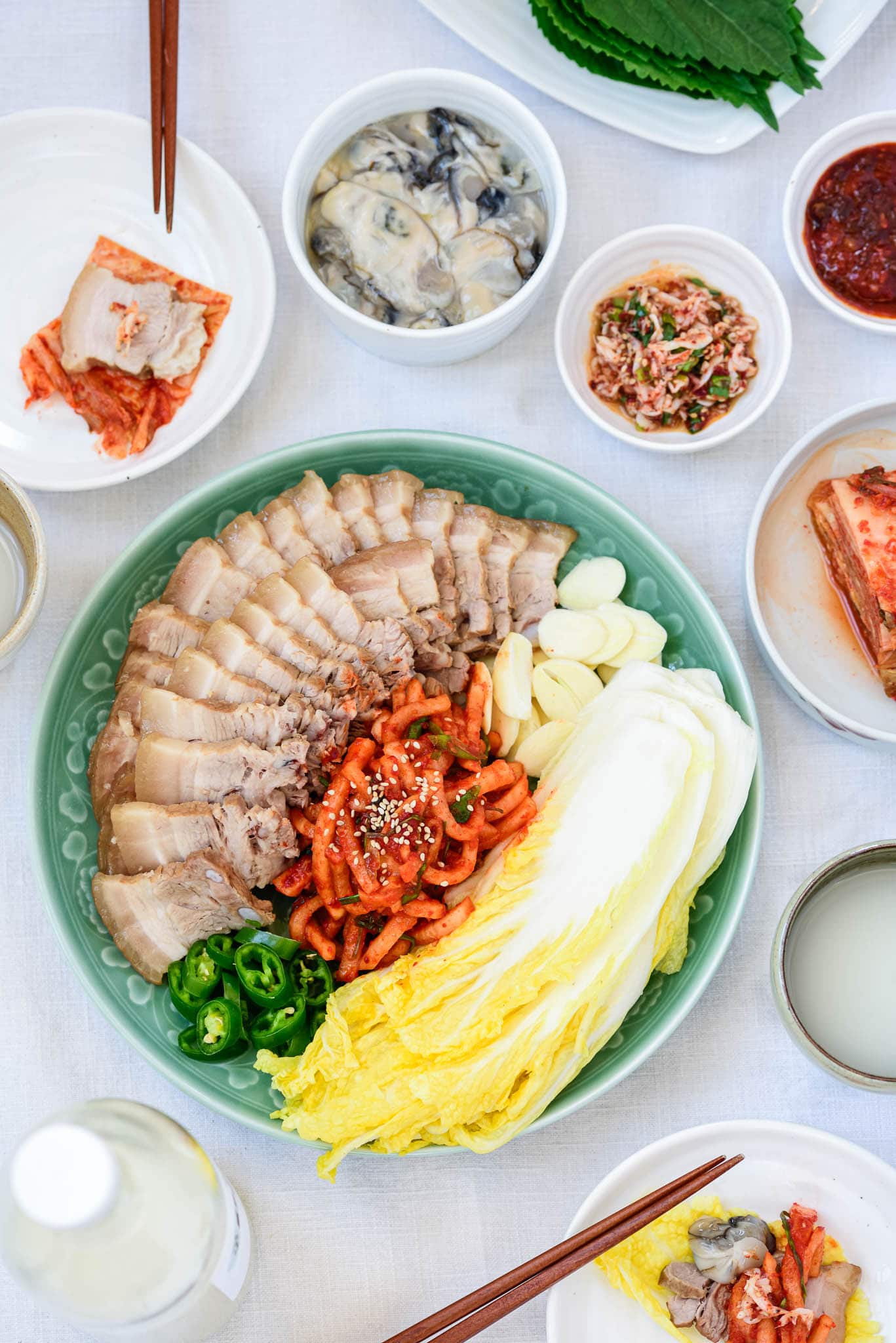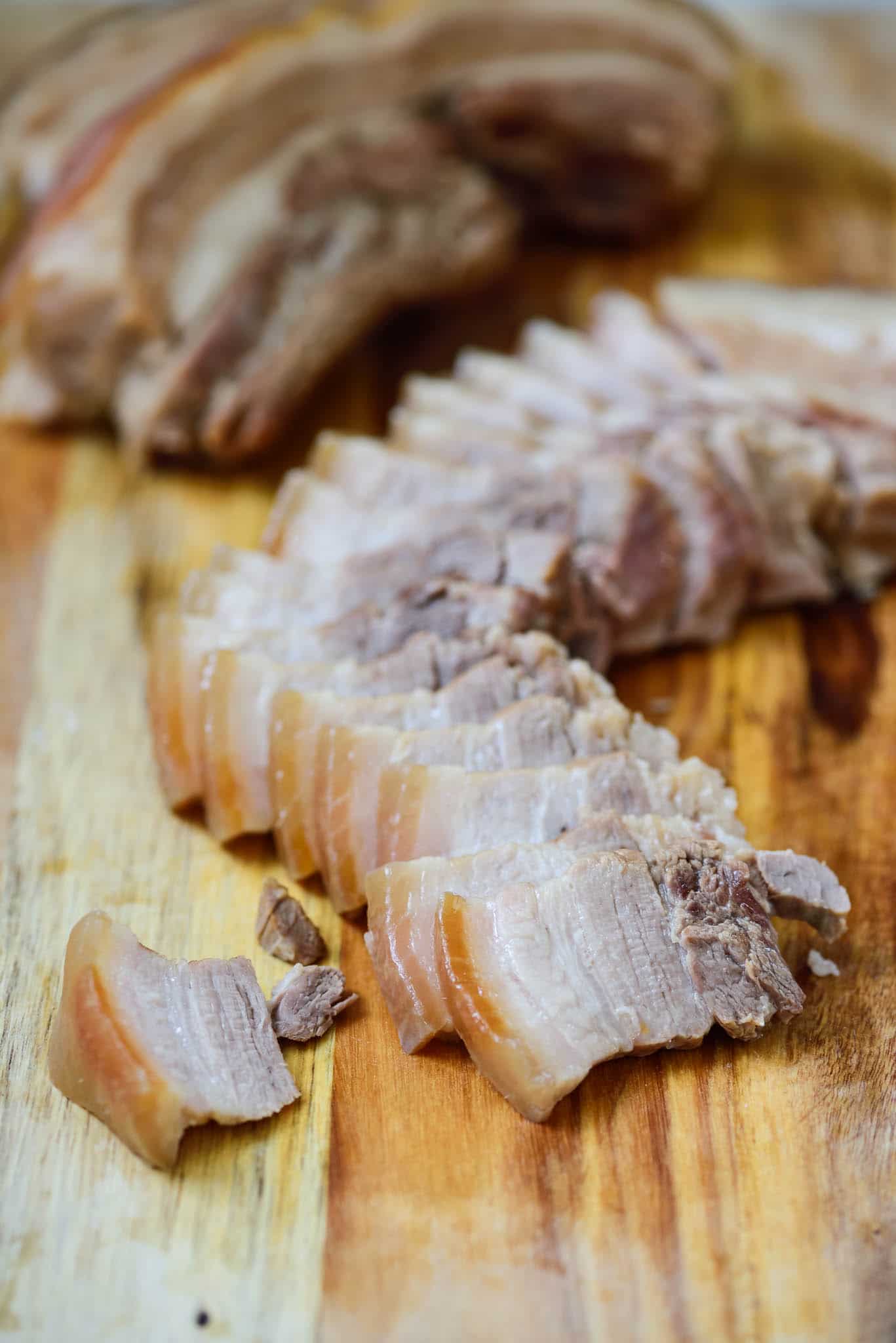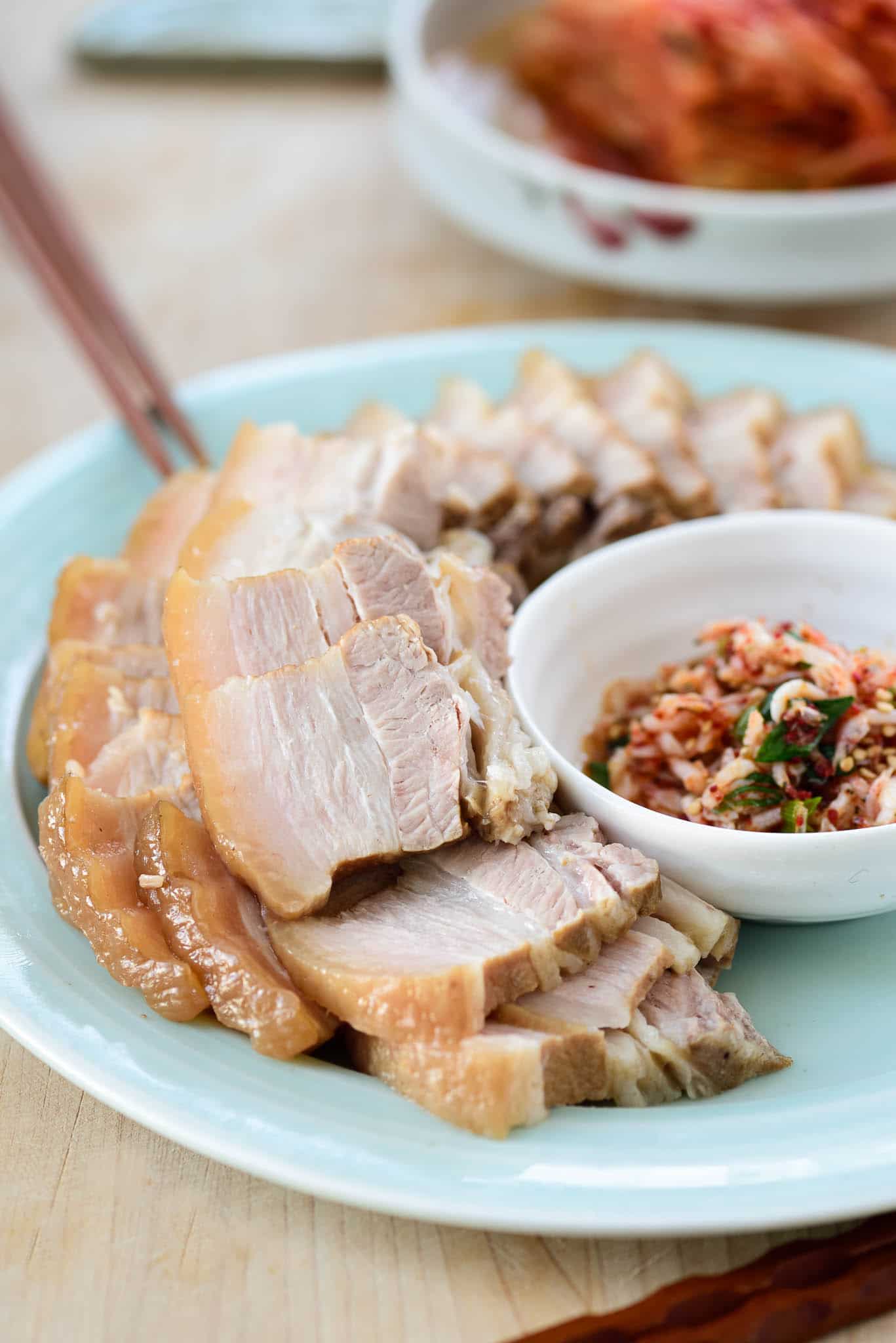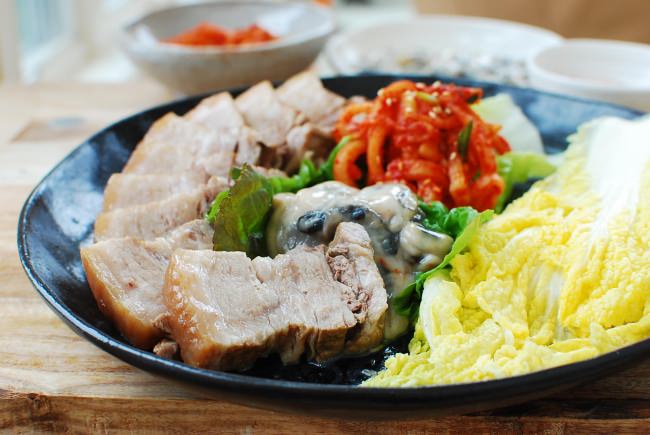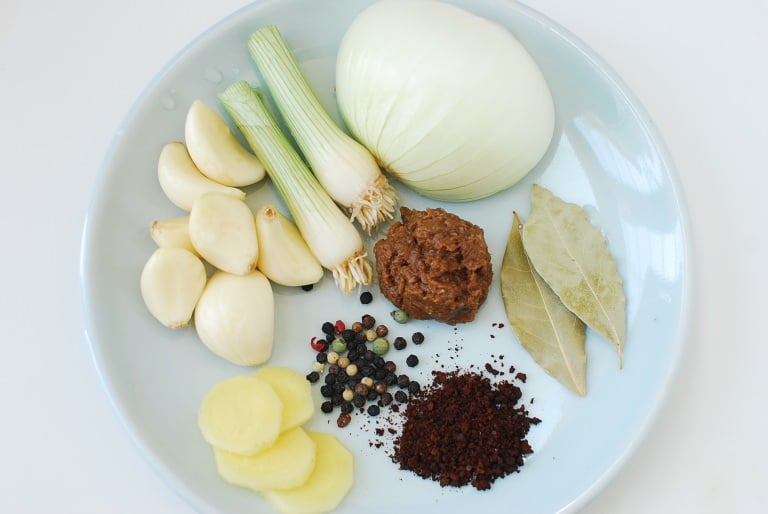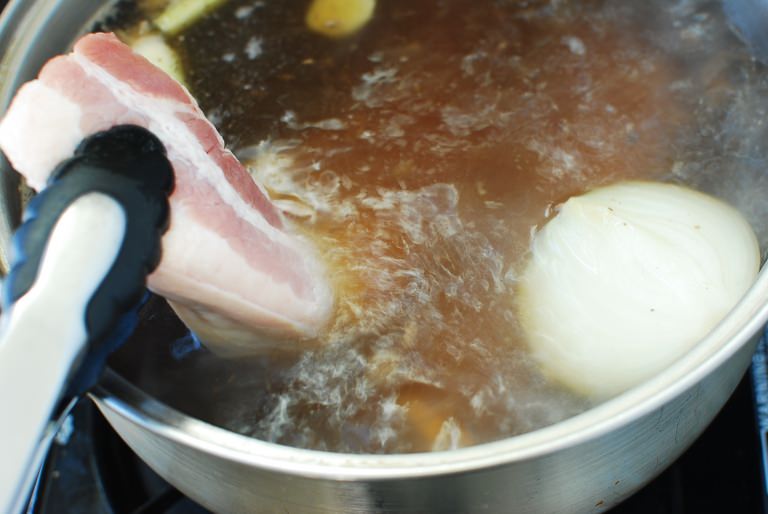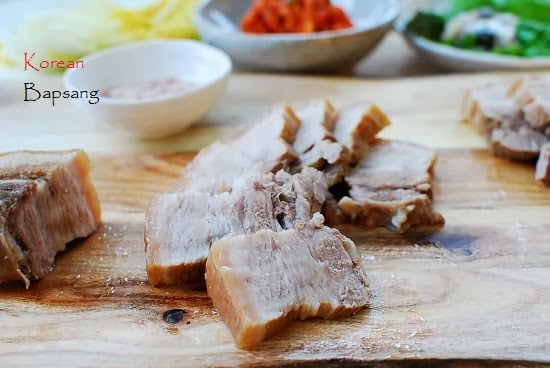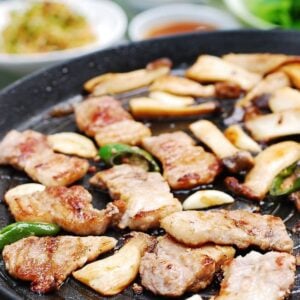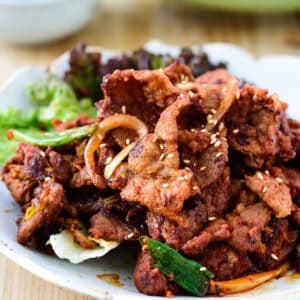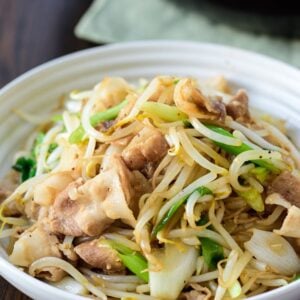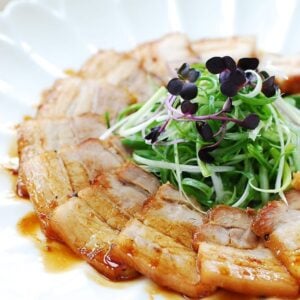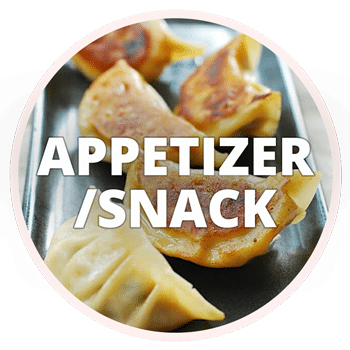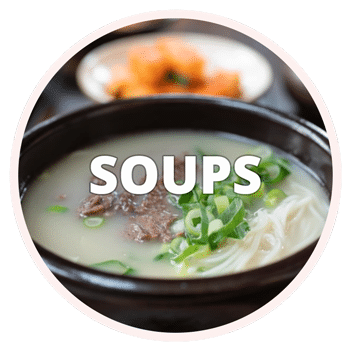What is bossam?
How to enjoy bossam
The cut of pork
Pork belly (samgyupsal, 삼겹살) and Boston butt (moksal, 목살) are the most commonly used cuts for this dish. Picnic shoulder (apdarisal, 앞다리살) is another option. You can also use a combination of these. If you’re using a big roast size, cut it into smaller pieces.
How to boil the pork
Korean cooks add a variety of ingredients to the boiling liquid to eliminate the unique smell of pork and to flavor the meat. The addition of doenjang (fermented soybean paste) is not surprising because pork and doenjang go very well together in dishes like doenjang jjigae.
Coffee is also very common. You can use instant coffee or brewed coffee (about a cup). Lately, I’ve been adding a small bottle (or can) of beer instead of coffee. If using brewed coffee or beer, reduce the amount of water by the equal amount.
You will hardly taste doenjang, coffee or beer from the boiled meat. They simply enhance the natural flavor of the pork. The result is rich, but subtly flavored, deliciously moist meat!
These are only a guide. You can add different ingredients or use less ingredients to make it more simply.
To cook the meat, add all the aromatics to the pot with water and bring it to a boil before adding the pork. Bring it to a boil again, cover, and boil for about 45 minutes over medium heat, depending on the thickness of your meat.
Tips for boiled pork
- Let the meat cool in the cooking liquid before slicing. This will keep the meat moist.
- If you are short of time, cool the boiled meat under the cold running water before slicing.
- Slice the meat right before serving so it doesn’t dry out.
For more Korean cooking inspirations, follow along on YouTube, Pinterest, Twitter, Facebook, and Instagram.
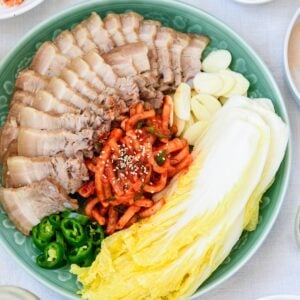
Ingredients
For the wraps
- tender inner parts of 1 napa cabbage, salted or red or green leaf lettuce
- (Dissolve 1/2 cup coarse salt in 4 cups of water, and soak the cabbage leaves until softened, 2 to 4 hours. Rinse and drain well.)
- Radish salad, musaengchae - See recipe.
- saewujeot (salted shrimp) use it as is or mix with a little bit of gochugaru, sesame oil and seeds, and chopped scallion
For the meat
- 2 whole fresh pork belly about 3-inch wide cut about 2.5 pounds
- 1/2 medium onion
- 2 - 3 white parts of large scallions
- 7 - 8 plump garlic cloves
- 1 inch ginger (thumb size), sliced
- 1 teaspoon whole black peppers
- 1.5 tablespoons doenjang, fermented soybean paste
- 1 teaspoon instant coffee, or a cup of brewed coffee or a small bottle (or can) of beer - 12 ounces
- 1 teaspoon salt
- 2 bay leaves
- 7 to 8 cups water (see note) if using brewed coffee or beer, reduce the amount of water by the equal amount
Instructions
- In a pot, bring water and all the brine ingredients to a boil over medium high heat, and continue to boil for 5 minutes.
- Add the pork belly, bring it to a boil. and boil for about 5 minutes, uncovered. Reduce the heat to medium, and cook, covered, until the meat is very tender, 45 to 50 minutes. Cut a small slice and try if tender at 40 minute point before cooking longer. Turn the heat off, and cool the meat in the cooking liquid. This will keep the meat moist.
- Thinly slice the meat and serve with the salted cabbage (or lettuce), saewujeot, and musaengchae.
Notes
- The amount of liquid you'll need depends on the size of your pot. Do not use a large pot because you'll need more water to cover the meat.
- Keep any leftover meat in the cooking liquid. Boil the meat in the liquid to reheat. This prevents the meat from drying out.


